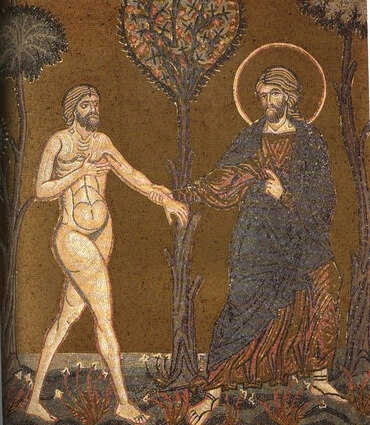1
Post tiuj okazintajxoj la vinisto de la regxo de Egiptujo kaj la bakisto kulpigxis antaux sia sinjoro, la regxo de Egiptujo.
2
Kaj Faraono kolerigxis kontraux siaj du korteganoj, kontraux la vinistestro kaj kontraux la bakistestro.
3
Kaj li metis ilin sub gardon en la domon de la estro de la korpogardistoj, en la malliberejon, en la lokon, kie Jozef estis malliberigita.
4
Kaj la estro de la korpogardistoj destinis por ili Jozefon, kaj li servis ilin. Kaj ili restis kelkan tempon en la malliberejo.
5
Kaj ambaux songxis songxon, cxiu sian apartan songxon en la sama nokto, cxiu kun aparta signifo de la songxo, la vinisto kaj la bakisto de la regxo de Egiptujo, kiuj estis tenataj en la malliberejo.
6
Kiam Jozef venis al ili matene, li vidis, ke ili estas cxagrenitaj.
7
Kaj li demandis la korteganojn de Faraono, kiuj estis kun li en malliberejo en la domo de lia sinjoro, dirante: Kial viaj vizagxoj estas cxagrenitaj hodiaux?
8
Kaj ili diris al li: Ni songxis songxon, sed estas cxi tie neniu, kiu gxin signifoklarigus. Kaj Jozef diris al ili: La signifoklarigoj apartenas ja al Dio; tamen rakontu al mi.
9
Tiam la vinistestro rakontis sian songxon al Jozef, kaj diris al li: En mia songxo mi vidis antaux mi vinbertrunkon;
10
la trunko havis tri brancxojn; apenaux gxi ekfloris, tuj aperis sur gxi beraroj kun maturaj beroj;
11
kaj la pokalo de Faraono estis en mia mano; kaj mi prenis la berojn, kaj mi elpremis ilin en la pokalon de Faraono, kaj mi donis la pokalon en la manon de Faraono.
12
Kaj Jozef diris al li: Jen estas gxia signifoklarigo: la tri brancxoj estas tri tagoj;
13
post tri tagoj Faraono levos vian kapon kaj redonos al vi vian oficon, kaj vi donos la pokalon de Faraono en lian manon laux la maniero de antauxe, kiam vi estis lia vinisto.
14
Sed memoru min, kiam estos bone al vi, kaj faru al mi favorkorajxon kaj memorigu pri mi Faraonon kaj elirigu min el cxi tiu domo.
15
CXar oni sxtelis min el la lando de la Hebreoj, kaj ankaux cxi tie mi faris nenion, pro kio oni metis min en la malliberejon.
16
Kiam la bakistestro vidis, ke la signifoklarigo estas bona, li diris al Jozef: Mi ankaux havis songxon; jen tri blankaj korboj estis sur mia kapo;
17
kaj en la supra korbo estis cxiaspecaj mangxajxoj de Faraono, bakitajxoj, kaj la birdoj mangxis ilin el la korbo sur mia kapo.
18
Kaj Jozef respondis, dirante: Jen estas gxia signifoklarigo: la tri korboj estas tri tagoj;
19
post tri tagoj Faraono deprenos de vi vian kapon kaj pendigos vin sur arbo, kaj la birdoj formangxos de vi vian karnon.
20
En la tria tago, tago de naskigxo de Faraono, li faris festenon por cxiuj siaj servantoj; kaj li venigis la vinistestron kaj la bakistestron en la mezon de siaj servantoj.
21
Kaj li redonis al la vinistestro lian oficon, kaj tiu donis la pokalon en la manon de Faraono;
22
sed la bakistestron li pendigis, kiel songxoklarigis al ili Jozef.
23
Kaj la vinistestro ne rememoris Jozefon, sed forgesis lin.







